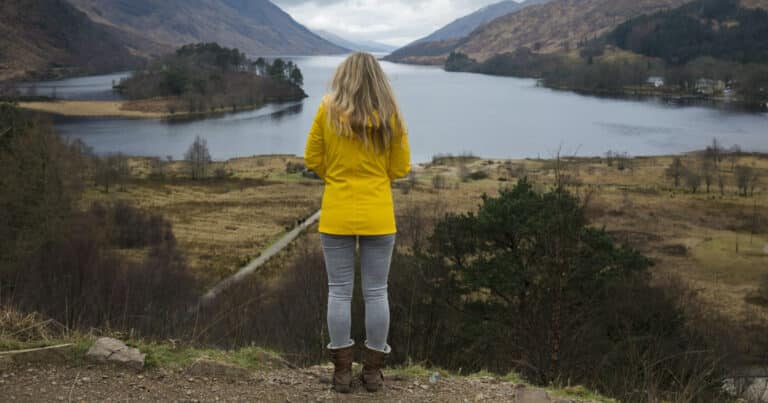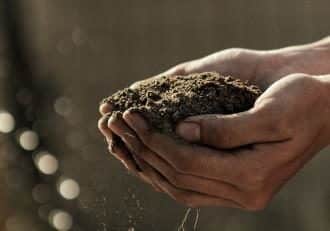By Sarah Kudishevich
Zero waste living means making intentional effort in every part of our lives to reduce the amount of things we buy and reduce the waste we send to a landfill, incinerator, or the ocean. This also includes becoming more conscious of our recycling and disposal habits. We all have the potential to make an impact on the environment, and the biggest change starts with shifting the individual behaviors we engage with each day.
Over the last several decades, humanity has developed a plastic addiction so that 50% of all plastics ever made have been manufactured in the last 15 years. Have you ever stopped to notice how much plastic waste we are each individually producing in our daily lives?
The good news is that there is something we can do about it. The zero waste movement is an effort to raise awareness and reduce waste, reversing the trend of convenience culture and our addiction to single-use materials.
The Zero Waste Journey
Going zero waste is first and foremost a journey, and nobody can transition to zero waste living overnight. There are an endless number of ways that we can change our behaviours to reduce our waste on both an individual and societal level. Because of this, it’s important not to get overwhelmed by how much there is to do. Instead, pick one transition to make at a time. Habit changes require time, and we must be patient with ourselves along the way.
By working towards a zero waste lifestyle and constantly trying to find new ways to reduce waste in your life, you may soon find that you are producing little to no waste at all and even educating others on how to go zero waste! The key is remaining focused on the next step in your journey, and not striving for perfection.
As author of The Zero-Waste Workbook, Sarah Kudishevich, says “our success should be measured by whether or not we are engaging with the journey and raising our awareness about waste […], not by how small of a container we can squeeze our waste into”.
Much of zero waste living focuses on reducing the amount of plastic packaging we use, and for good reason. Did you know that plastic never actually decomposes? It breaks down into smaller and smaller pieces, eventually turning into micro-plastics that end up in our food and water supply.
One study even found micro-plastics in 80% of both tap and bottled water across 14 countries. Another study found that we are ingesting on average a credit card-worth of plastic every single week.
Today plastics are used in everything ranging from the packaging of food to the manufacturing of clothing to the lining of tea bags. Plastic is everywhere. But the good news is, there is a lot we can do to reverse this trend.
Easy Tips for Reducing Your Waste
If you are interested in reducing your waste, there are lots of simple and practical zero waste tips to get you started. If you want to better understand how to go zero waste, here are crucial zero waste tips to consider:
Say NO to Plastic Water Bottles & Toothbrushes
One of the easiest swaps we can make is to opt for a reusable bottle instead of a disposable one to stay hydrated. More than one million plastic bottles are sold globally every minute, and it takes at least 450 years for a plastic bottle to degrade. By refilling a reusable water bottle, you are avoiding plastic waste and setting an example for others around you on the importance of avoiding plastic bottles.
Imagine every single toothbrush you have ever used in your life, still rotting away somewhere in a landfill. A plastic toothbrush takes about 500 years to degrade. Instead, try using a bamboo toothbrush or getting an electric brush with a reusable handle. This swap is super simple to make in your life and can make a big impact.
Food Consumption & Waste
Grocery shopping contributes to a large percentage of our trash. Most of this waste comes from plastic packaging that we buy food products in. This includes plastic bags for produce, plastics packaging for grains and snacks, and plastic wrappers for cheeses and meat.
Instead, try bringing your own reusable containers, mason jars, or reusable totes. Produce, grains from the bulk section, and meat/cheese from the deli section can easily be placed in your own container instead. You can experiment by limiting your shopping to the bulk section at grocery stores to see just how much you can reduce your grocery waste.
Over 20% of waste production comes from food waste. Simply by separating out your food waste into a compost pile, you can dramatically reduce how much you are sending to the landfill. Not only does this help reduce waste, but returning food waste to the earth helps it to decompose faster and creates rich nutrients in the soil to support growth and new life.
See if your community has curb-side compost collection or a local garden compost pile where you can bring your fruit peels, leftovers, and other food waste. You can even consider starting a simple backyard or patio compost bin yourself.
Switch From Disposable Diapers & Paper Towels
Disposable diapers take at least 500 years to degrade. Considering how many diapers a baby needs, it becomes a huge source of waste. By switching to reusable cloth diapers, not only are you reducing your waste and protecting the planet, but it’s better for your baby’s health as well. Not only that, it can also save you over $700 per year per child.
In the United States alone, 13 billion pounds of paper towels are used every year. While paper towels may be convenient, they create a lot of damage to forests and result in an incredible amount of waste. Instead, switch to cloth napkins or tea towels to clean up spills and wipe up the kitchen. Making this replacement could save you up to $100 per year.
The Intangibles of a Zero Waste Lifestyle
In addition to the practical zero waste swaps, there are many other things that you can consider as part of a zero waste lifestyle. Waste reduction goes far beyond the physical waste we produce. It is also about recognising where we are supporting wasteful industries and how we can educate others about waste reduction.
Waste free living is really about becoming aware of all the different areas in which we can be less wasteful, and recognising our own individual power to make change. Here are six other areas to consider as you make the transition to a waste free lifestyle:
Talk to Family Members and Friends About Waste
A huge part of zero waste living is education and awareness. Start a conversation with your family members and friends about why you are choosing to reduce your waste. Help them become aware of their waste production. Inspire them by sharing some of your favourite zero waste tips. One conversation can have many ripple effects.
Additionally, one of the most important parts of the zero waste movement is building community. Going zero waste is an effort by consumers to change the way that we engage with waste. Collective consumer actions influences businesses to change their behaviour in response to consumer demands. Companies such as Patagonia and Adidas have begun waste reduction initiatives in response to their customers’ concern for the environment.
This cannot be done without building community and working together for the values that are important to us. Find some friends to place bulk food orders with on the items that are hard to find without packaging. Get in touch with your local farm. Work with local restaurants to encourage them to reduce their waste. When we bring our collective efforts together, the possibilities are endless.
Opt For Public Transit
Transportation is one of the most wasteful industries that we all engage in. The impacts to air quality and the release of harmful greenhouse gasses are just a few of the negative effects. Consider how many individuals around the world drive a car every day to get to work. By opting for public transport, you can reduce your personal greenhouse gas emissions as well as save money.
Thrift Shops
The clothing industry creates more CO2 emissions than the aviation and shipping industries combined. 92 million tons of clothing related waste are created each year due to our wasteful shopping habits.
Rather than supporting the wasteful fast fashion industry, buy your clothing gently used from the thrift store. Not only is thrift shopping much better for the planet, but it’s also much better for your wallet.
Eat Less Meat
Did you know that if the global population transitioned to a plant-based diet, we would use 75% less farmland than what we use today? Meat production is far more resource intensive than the production of vegetables and grains.
If you are a meat-eater, consider reducing your meat consumption to once per week. Meat could even become a treat for special occasions. This simple choice is one of the biggest things that you can do to reduce your personal waste and impact on the planet.
Own Your Zero Waste Journey
There is no single way to go zero waste, and everyone has their own journey. Part of zero waste living is finding your own path and taking on the swaps that are best for your circumstances and constraints.
As zero waste author Sarah Kudishevich says, “you should never take on something that you are not ready for. We should always strive to grow and do better, but choosing a zero waste lifestyle is first and foremost a journey”.
Rather than taking on everything at once, pick one thing that you want to change today and implement it in your life.
Disposal Habits
Another aspect of zero waste living is paying attention to disposal habits. Making sure that we are properly disposing of the items we use is just as important as reducing our waste.
Many communities are fortunate to have curb-side pickup for recycling and compost. However, it’s easy to become complacent with these luxuries and forget to pay attention to what we are throwing away in each bin.
According to National Geographic, 91% of the plastics we throw into the recycling bin do not actually get recycled. Lack of education and awareness around what goes in which bin is the primary cause of this issue.
Even before something gets to the recycling bin, there are several other steps to consider first. The Environmental Protection Agency teaches the strategy of 3 R’s: Reduce, Reuse, Recycle.
The first step is to work to reduce waste using the strategies outlines above. Next, reuse what is already available. Instead of tossing something out, see if you have a way to reuse it first. It could even serve a different purpose than what it was originally intended for. Lastly, when all other options have been explored, then recycling is the last resort. Make sure it is headed to the right bin and is accepted for recycling in your community before you throw it out.
Most importantly, do not get overwhelmed! There are a lot of changes that can be made to reduce our waste, but it’s important to take it one step at a time and honour your personal journey.
Religion and Zero Waste
Anne-Marie Bonneau writes tongue in cheek on her blog Zero Waste Chef about the Church of Zero Waste and 10 commandments for her environmental religion (although she assures us that they’re really just suggestions, and you won’t go to Hell for breaking them). Here’s her list, and make sure to check out the article to get explanations for each one:
- You will start small
- You will ask yourself if you really need something before you buy it
- You will refuse single-use plastics whenever possible
- You will use your head
- You will not judge others
- You will meet with a congregation of like-minded people occasionally
- You will not covet your neighbor’s zero-waste lifestyle
- You will not covet your neighbor’s jars
- You will not feel guilty when you mess up
- You will not give up
These suggestions are a great place to start. Zero waste is an ambitious goal, we won’t get there overnight. But having these suggestions can help us get a little closer each day to a healthier and more sustainable lifestyle.
If you’re not ready to give over your life to the Church of Zero Waste, no need to fret. There’s a good chance that you already have environmental suggestions in your faith tradition.
For example, in Judaism there is the concept of Baal Tashchit, not to waste. In Islam, there is “a rich tradition of highlighting the importance of environmental protection and conservation of natural resources,” as described on EcoMENA. And in Christianity, there is a strong tradition of respecting and protecting nature, as illuminated by Rev. Dr. Leah Schade in her free Eco Preacher resources. And of course there is much more environmental wisdom in these faiths and other faiths as well than what I’ve briefly outlined above.
There is no shortage of wisdom in our religions to address the environmental crisis in our time. The question is, how do we bring that wisdom to light and action in our faith communities? This blog post is merely an introduction. The rest is up to you.
* Featured image source








